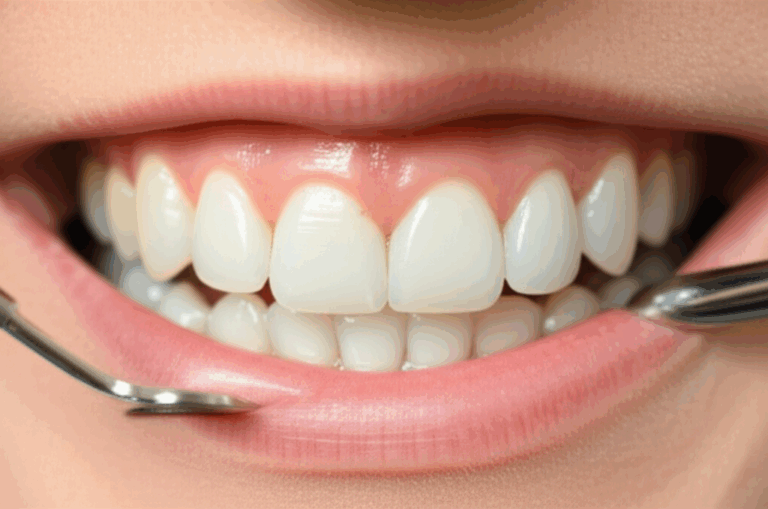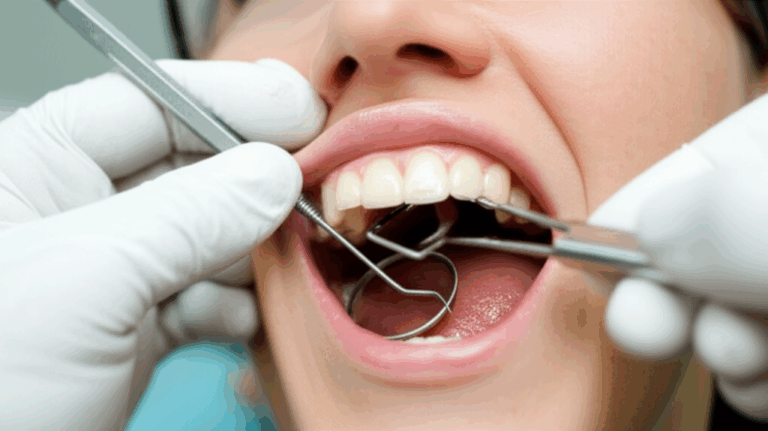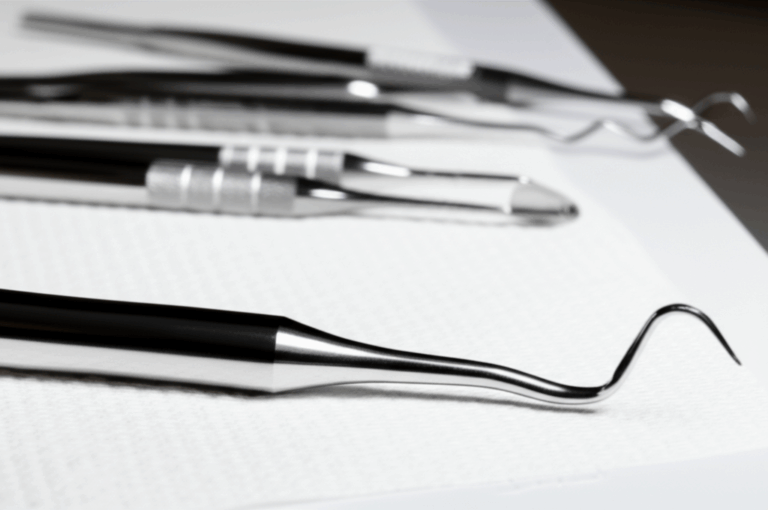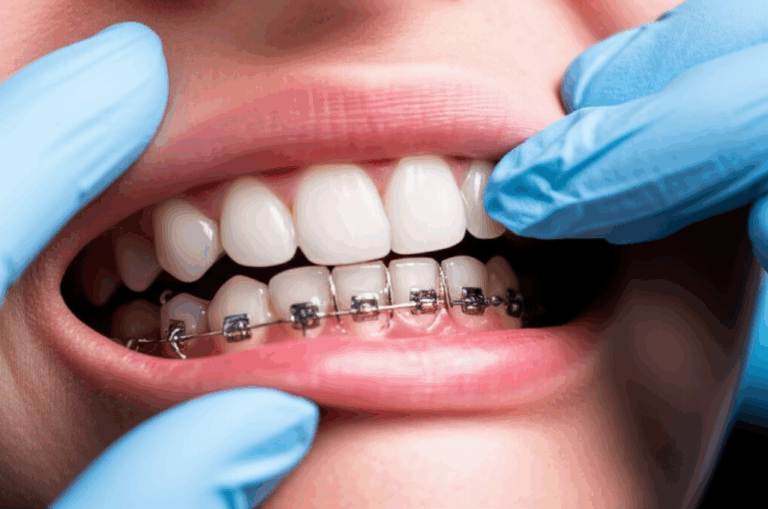
Can a Dentist Bill You? Understanding Your Dental Billing Rights and Responsibilities
That awful feeling when you open a dental bill and it’s way higher than you thought—you’re not the only one. Maybe you’ve asked yourself, “Can my dentist really charge me for this?” or “Is this extra charge even allowed?” If you feel confused or upset about your dental bill, you’re in the right place. Let’s break down what’s happening, make it clear, and help you feel sure about what to do next. Dental billing doesn’t have to be a confusing puzzle—by the end of this guide, you’ll know what’s fair, what isn’t, and what you can do if you get a surprise bill.
In This Article
- Why Is Dental Billing So Confusing?
- When Is It Legitimate for Your Dentist to Bill You?
- Situations Where You Should NOT Be Billed—and What To Do
- How to Handle and Dispute Unexpected Dental Bills
- Proactive Strategies to Prevent Surprise Dental Bills
- Key Takeaways: Advocate for Your Financial Health
- FAQs About Dental Billing
Why Is Dental Billing So Confusing?
Let’s be honest—figuring out your dental bill can feel like reading a language you don’t know. Strange codes, things you don’t remember getting, a bunch of insurance words… If you feel lost, you’re not alone. Here’s why it’s a mess:
- Dental bills mix treatment and insurance: Your dentist does the work, but insurance plans decide what’s covered, what’s not, and how much you have to pay.
- Extra charges and weird words: Stuff like deductibles or “balance billing” depends a lot on the details in your insurance.
- Different rules everywhere: Every office does things in its own way—missed appointment fees, ways to pay, or what happens if insurance says no.
Bottom line: Dental billing is not just about the visit—it’s about what happens behind the curtains, too.
When Is It Legitimate for Your Dentist to Bill You?
You may ask, “Do I really have to pay for all this? When is my dentist just following the usual rules?” Here’s a clear look at when a dentist can send you a real bill:
1. For Work Done (Normal Practice)
If you get a service—like a cleaning, a filling, X-ray, or something bigger like a crown or dental implant—you should expect a bill. Dentists charge for their time, skills, supplies, and tools.
Example:
You come in for your checkup and also get a cavity filled. The dentist bills you for the checkup, the filling, and maybe an X-ray.
Key Words:
- CDT Codes: These are the “Current Dental Terminology” codes that list each treatment for insurance.
- Itemized Bill: Always ask for this! It shows each thing you got, so you can spot mistakes.
2. Your Share After Insurance Pays
Dental insurance almost never covers everything. Usually, you have to pay some part—even after insurance. Here’s what you’ll see:
- Deductible: What you pay yourself before insurance starts paying.
- Co-pay: A fixed cost for a service (like $20 each visit).
- Co-insurance: A part of the cost (like you pay 20%, insurance pays 80%).
- Yearly limit: Many plans only pay up to a set amount a year. Above that? You pay.
How to check:
Look at your Explanation of Benefits (EOB) from your insurance. It says what they paid, any discounts, and what you owe.
3. For Things Not Covered or Chosen By You
Not everything is paid for. Dental insurance often skips things like teeth whitening or adult braces since they’re seen as not needed for health.
Scenario:
You want whiter teeth, so you ask for professional whitening. Insurance won’t pay; you cover it all. Same goes if you use up your plan or ask for work insurance says isn’t needed.
4. If You Use a Dentist Not in Your Network
This is where things can cost a lot more. If your dentist isn’t on your insurance plan:
- They charge what they want—sometimes much more than your insurance allows.
- Balance billing happens—if your insurance pays $65 for a cleaning but the dentist wants $120, you pay the $55 difference.
Tip:
Always ask if your dentist is “in-network” to avoid a nasty bill. If you’re thinking about big work (like working with a crown and bridge lab), check your coverage first.
5. If You Miss or Cancel Your Appointment Too Late
Didn’t show up or canceled very late? If your dentist has a written, clear policy (most do), you could be charged a missed or late-cancel fee. But these should be fair, not just a way to make money.
- Ask to see the rules—you should get this when you become a patient.
- Check it’s fair—fees should be the same for everyone.
6. Old Bills From Before
If insurance didn’t pay everything or you still owe, old balances can carry over. Dentists can bill you (and even send unpaid bills to collections, which can hurt your credit score).
7. If Your Treatment Changes
Dental work doesn’t always go as planned. Maybe a simple filling becomes a root canal after they find a big infection. In cases like this:
- They should tell you about new costs right away.
- You must say yes to the new plan.
- They should give you a new cost estimate.
Always check:
Did you say yes to the new treatment?
Situations Where You Should NOT Be Billed—and What To Do
Even good offices can make mistakes. And some places may try to take advantage. Here are times you should not have to pay—and how to stand up for yourself.
1. Billing for Work Not Done or Wrong Details
This one’s big. Never pay for something you didn’t get—or for a more expensive version than what you received.
Examples:
- You get a normal cleaning, but they bill you for a deep cleaning.
- You get charged for X-rays that weren’t taken.
What to do:
Compare your bill and your EOB to your visit. Don’t be scared to ask, “What is this charge for?”
2. After Insurance Already Paid (Balance Billing Mistake)
Some dentists may bill you the difference between their higher price and what insurance paid—even if that’s not allowed. For in-network dentists, balance billing usually isn’t okay.
If you see this:
Call your insurance and report the problem.
3. Without Your Agreement
You shouldn’t have to pay for a treatment you didn’t agree to—unless it’s a real emergency.
- No surprises: You should sign a plan and know what it costs first.
- Consent forms: These are to protect both you and your dentist.
4. Mistakes or Double Charges
Nobody’s perfect. Mistakes happen—a wrong code, a wrong amount, or a double charge for one thing.
What to do:
Ask for a list of what you were billed for. If something looks off or appears twice, get it fixed before paying.
5. Suspected Lying or Unfair Billing
Look out for:
- Upcoding: Charging for a bigger treatment than you got.
- Unbundling: Charging for steps that should be counted together.
- Adding on made-up services.
If you think something is wrong, you can file a complaint with your state’s dental board or your local consumer protection office.
How to Handle and Dispute Unexpected Dental Bills
If you get a bill that’s wrong or just too high, don’t panic. Here’s what to do:
Step 1: Check Your Explanation of Benefits (EOB)
This shows what insurance got billed, what they paid, any discounts, and what you owe.
- Go line by line: Make sure your dentist’s bill matches up with the EOB.
- Look out for: Things you didn’t get, weird codes, or charges you shouldn’t owe.
Step 2: Contact the Dental Office’s Billing Department
Call or visit the office.
- Be polite but strong: “I have a question about this charge—can you explain it?”
- Ask for a detailed bill
- Explain your issue: Point out what looks off.
- Work out payments: If the charge is real but too much, ask about paying over time.
Step 3: Talk to Your Insurance Company
Sometimes the problem is about denied claims or mistakes with your coverage.
- Ask questions: “Why wasn’t this covered?” or “Is this my deductible?”
- Appeal if needed: Most companies have a way to check denied claims. You usually have 60–180 days to appeal.
Step 4: Keep Notes on Everything
Write down who you talked to, what they said, and when. Keep all papers. If you have to go higher up, this helps.
Step 5: Escalate if Needed
If you still can’t fix things:
- State Dental Board: Complain about unfair or bad billing.
- Consumer Protection Agency: Like the Better Business Bureau or Attorney General.
- Patient Advocacy Groups: They can help with tough cases.
Proactive Strategies to Prevent Surprise Dental Bills
The best problem is one you don’t have! Here’s how to stop dental bill surprises:
1. Know Your Insurance Plan Well
Before you book care:
- Check if your dentist is in-network
- Know what your yearly limits and waiting times are
- Get clear on what’s paid for and what’s not
2. Get a Written Treatment Plan and Price
Don’t just ask what you’ll get—ask what it’ll cost.
- Ask for a written cost estimate
- See each step broken down
- Ask about pre-approval for bigger work so insurance can check before treatment
3. Ask About Office Payment Rules
Each office is different.
- Ask about when you must pay, missed appointment fees, and payment choices
- Read everything before you sign
4. Ask Questions Every Step of the Way
Don’t be quiet—ask about your bill or your care.
If you’re getting a veneer or trying out a high-tech option like a digital dental lab, ask your dentist how it will show up on your bill.
5. Get a Second Opinion
If a treatment seems too pricey or you aren’t sure you need it, you can always check with another dentist. Some problems have more than one good fix—a second opinion can help you feel sure.
Key Takeaways: Advocate for Your Financial Health
Here’s what really matters:
- Most dental bills are for real work done. If you got the care, expect a bill.
- Insurance won’t pay for everything. You usually pay some, so check your plan and the EOB.
- Don’t pay for things you didn’t get or didn’t agree to.
- Mistakes and surprises happen. If they do, ask questions and check all papers.
- You have rights and options. If a bill seems wrong, don’t just pay—fight it.
- Talking clearly before and after visits protects you—and your wallet.
FAQs About Dental Billing
Q: Can my dentist bill me even if insurance denied the claim?
A: Yes, but only for things insurance won’t pay for and IF you agreed, knowing the risks. They can’t bill you for things insurance denied because of office mistakes.
Q: What does “balance billing” mean, and is it legal?
A: Balance billing is when a dentist charges you the difference between what they want and what insurance pays. For in-network dentists, this is mostly not allowed. Out-of-network offices can balance-bill, so be careful.
Q: Am I stuck paying for a missed appointment fee?
A: Only if your dentist has a clear, posted rule that you agreed to (usually in new patient forms). Fees shouldn’t be crazy high.
Q: What if I can’t afford my dental bill all at once?
A: Don’t ignore it. Most offices offer payment plans—just ask! Some even help people who can’t pay full price. Ignoring the bill can send you to collections and hurt your credit.
Q: How do I spot and challenge billing mistakes?
A:
- Get an itemized bill.
- Check it against your insurance EOB.
- Call the office’s billing team to ask about things you don’t get.
Q: Where do I go if the office and insurance company won’t help?
A:
- Complain to your state dental board.
- Contact your state’s attorney general or the Better Business Bureau.
- Ask a patient support group for help.
Final Word: Take Charge—Your Smile and Your Wallet Deserve It!
Dental health matters. So does your money. Knowing how dental billing works means fewer surprises, protecting your rights, and getting the care you need—without headaches later. Don’t be afraid to ask, read the paperwork, and look out for yourself every step of the way. A little info goes far—so you can focus on your healthiest, best smile.
Want to know more about quality restorations or dental lab work? You can check out topics like china dental lab, zirconia lab, or 3d dental lab for more details on new dental technology.
References:
- American Dental Association: “Understanding Your Dental Bill”
- National Association of Dental Plans: “Dental Benefit Basics”
- Consumer Reports: “How to Avoid Unexpected Dental Bills”
(Note: This guide gives general info, not legal advice. Your case may be different based on your insurance, state law, and your dentist. If you’re not sure, get a second opinion or reach out to a consumer group.)








